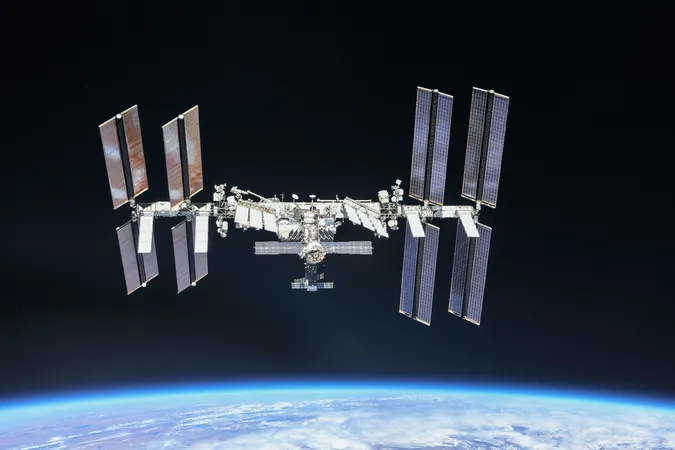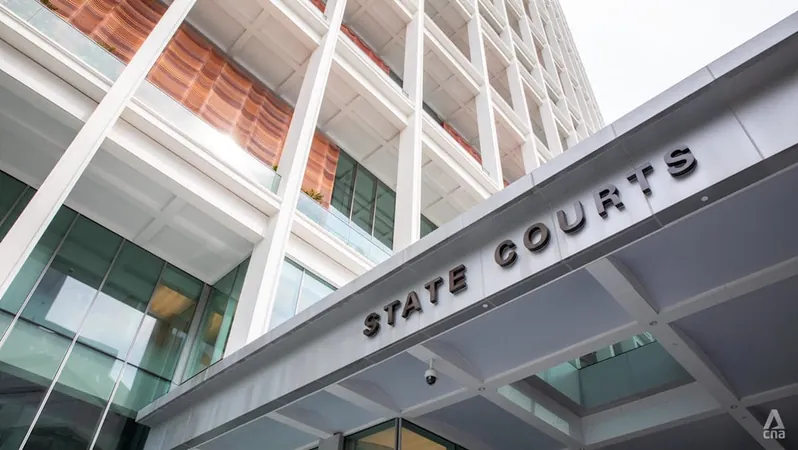
Astronauts on the Edge: Groundbreaking Study Reveals Stem Cells Age Rapidly in Space!
2025-09-17
Author: Jia
Shocking Discovery: Space Affects Stem Cell Aging
A groundbreaking study uncovers a startling fact: spending time in space may accelerate the aging of crucial human stem cells! Researchers found that hematopoietic stem and progenitor cells (HSPCs), which play a vital role in blood and immune system health, show signs of accelerated aging after time aboard the International Space Station (ISS).
What Science Says: The Effects of Microgravity and Radiation
Conducted by scientists at the University of California San Diego and published in the esteemed journal Cell Stem Cell, the research highlights how the harsh conditions of spaceflight—particularly radiation exposure and microgravity—induce tell-tale signs of aging in HSPCs. These changes include diminished cell-generating abilities and increased DNA damage, raising serious concerns about the long-term viability of astronauts on extended missions.
A Glimmer of Hope: Can the Damage Be Reversed?
But here's the intriguing twist: some of the damage inflicted on these stem cells may be reversible! After being returned to a 'young, healthy environment' on Earth, certain HSPCs demonstrated signs of recovery. This finding could reshape how we approach astronaut health in future deep-space explorations.
Linking Space Research to Earthly Health: The Bigger Picture
Understanding the effects of microgravity on human cells not only informs astronaut safety during prolonged space missions but can also illuminate issues related to human aging and diseases like cancer here on Earth! According to co-author Catriona Jamieson, insights from this study could have far-reaching implications.
The Twins Study: Groundbreaking Insights from NASA
This research builds on the valuable data gathered from NASA's Twins Study, which observed identical twins Scott and Mark Kelly. Scott spent nearly a year aboard the ISS, while Mark remained on Earth. Remarkably, Scott's gene expression levels returned to normal after returning home, demonstrating the human body's resilience to space conditions.
Pioneering Research on the ISS: More Missions Ahead
The latest study, utilizing innovative AI-powered imaging tools and a specially designed platform for culturing human stem cells in space, opens the door for more research. With UC San Diego's ongoing commitment to studying HSPCs during ISS missions, including real-time monitoring of molecular changes, we are on the brink of unlocking even more secrets of living in space.
Future Implications: What Awaits Us?
As UC San Diego prepares for more launches and astronaut studies, the potential to enhance human health in space—and on Earth—beckons. The findings offer both caution and optimism as we venture further into the cosmos.


 Brasil (PT)
Brasil (PT)
 Canada (EN)
Canada (EN)
 Chile (ES)
Chile (ES)
 Česko (CS)
Česko (CS)
 대한민국 (KO)
대한민국 (KO)
 España (ES)
España (ES)
 France (FR)
France (FR)
 Hong Kong (EN)
Hong Kong (EN)
 Italia (IT)
Italia (IT)
 日本 (JA)
日本 (JA)
 Magyarország (HU)
Magyarország (HU)
 Norge (NO)
Norge (NO)
 Polska (PL)
Polska (PL)
 Schweiz (DE)
Schweiz (DE)
 Singapore (EN)
Singapore (EN)
 Sverige (SV)
Sverige (SV)
 Suomi (FI)
Suomi (FI)
 Türkiye (TR)
Türkiye (TR)
 الإمارات العربية المتحدة (AR)
الإمارات العربية المتحدة (AR)